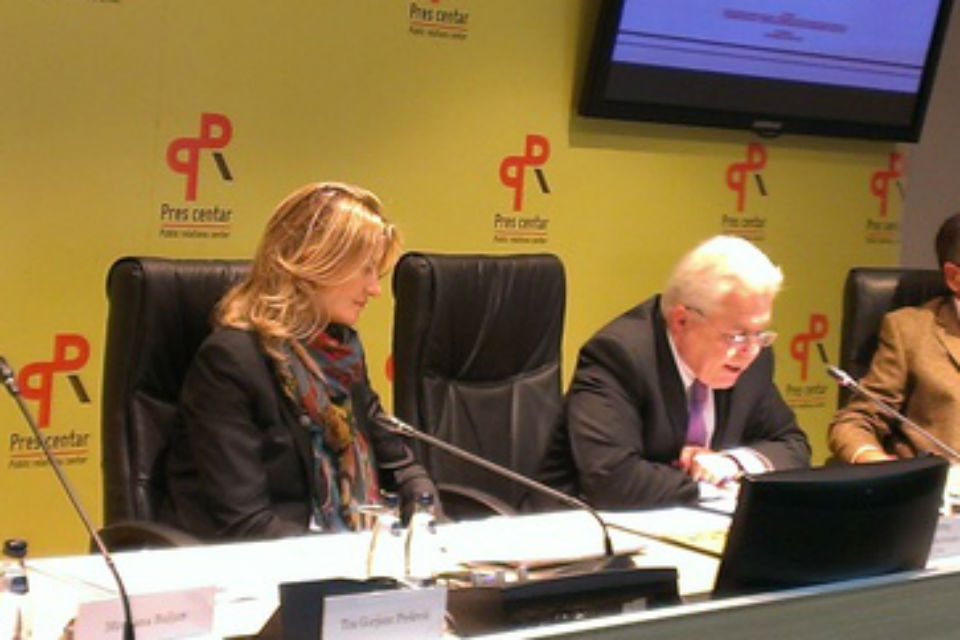UK supports media self-regulation in Montenegro
HMA Ian Whitting at report presentation ceremony holds a speech on importance of media self-regulation

Dear ladies and gentlemen, dear friends,
It is my pleasure to greet you all on behalf of the British Embassy and to use this opportunity to thank Human Rights Action for the effort and time they have invested in the implementation of this project.
There is hardly any need to speak about the importance of the topic we are discussing today and the role of free and professional media. However, I am expected to say a few words so I will rely on your good will and patience.
We often hear that a democratic society can’t survive and retain its vitality without free media that reports on issues of public interest in a professional and ethical manner. In societies undergoing transition, such as Montenegrin, their role is, if possible, even more important. The media investigate, report and raise questions on established opinions and customs. In order to be able to play this important role, the media should not be subjected to threats and violence. It is the obligation of the State to its citizens, the media and, ultimately to itself, to thoroughly and effectively investigate and prosecute each case.
We welcome the publication of this Report, which we expect to present a mature position on this complex problem. The Report contains important conclusions, with emphasis on Media Council for Self-Regulation to separate carriers of some of its activities, in order to avoid the risk of being both the prosecutor and the judge in its self-regulatory activities, proposing a solution to separate the Commission for Complaints and Appeals as a body personally and organisationally distinct from the monitoring team and independent of the media editorial teams.
I agree with the suggestion that the certain principles and guidelines of the Code should be further specified for better clarity. We are aware that it is a lot of work, but it is also very important as better clarity of principles results in better self-regulation.
It is also important for the media to work in accordance with the professional and ethical standards. This quality can hardly be imposed from the outside. Professionalism and ethics are often defined by tradition, rules, codes and other standards that the media undergo willingly. However, in the essence, they appear from the journalist as an individual, your personal integrity and your approach to work.
Although it may not often seem so, the power of the media in society is enormous. And with great power comes great responsibility, responsibility for the manner in which that power is used, for its purpose. Marko Miljanov once said that “it is brave to defend yourself from others, and humane to defend others from yourself”. The world might have changed radically from those times, but these wise words remain applicable as if they were uttered yesterday.
Today, journalistic self-regulatory bodies are expected to have such a function. Let me just reiterate that it is my pleasure and honour that the British Embassy has supported this project, which is dedicated to strengthening their role.